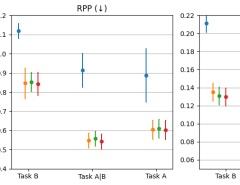Authors: Petter Törnberg
Published on: February 05, 2024
Impact Score: 8.22
Arxiv code: Arxiv:2402.05129
Summary
- What is new: This paper introduces a comprehensive set of standards and best practices for the use of Large Language Models (LLMs) in text annotation, addressing concerns over quality and validity.
- Why this is important: The rapid adoption of LLMs in research has led to a lack of established practices, raising concerns about bias, misunderstandings, and unreliable results.
- What the research proposes: The proposal of a structured, directed, and formalized approach for using LLMs that includes model selection, prompt engineering, structured prompting, prompt stability analysis, rigorous model validation, and the consideration of ethical and legal implications.
- Results: The paper advocates for a more nuanced and critical engagement with LLMs in social scientific research, aiming to ensure the integrity and robustness of text annotation practices.
Technical Details
Technological frameworks used: Prompt engineering, structured prompting, prompt stability analysis
Models used: Large Language Models (LLMs)
Data used: Not specified in the abstract
Potential Impact
This research could impact companies involved in natural language processing, social media platforms, and any businesses relying on text annotation for content moderation, customer service, or market analysis.
Want to implement this idea in a business?
We have generated a startup concept here: EthiCall.



Leave a Reply